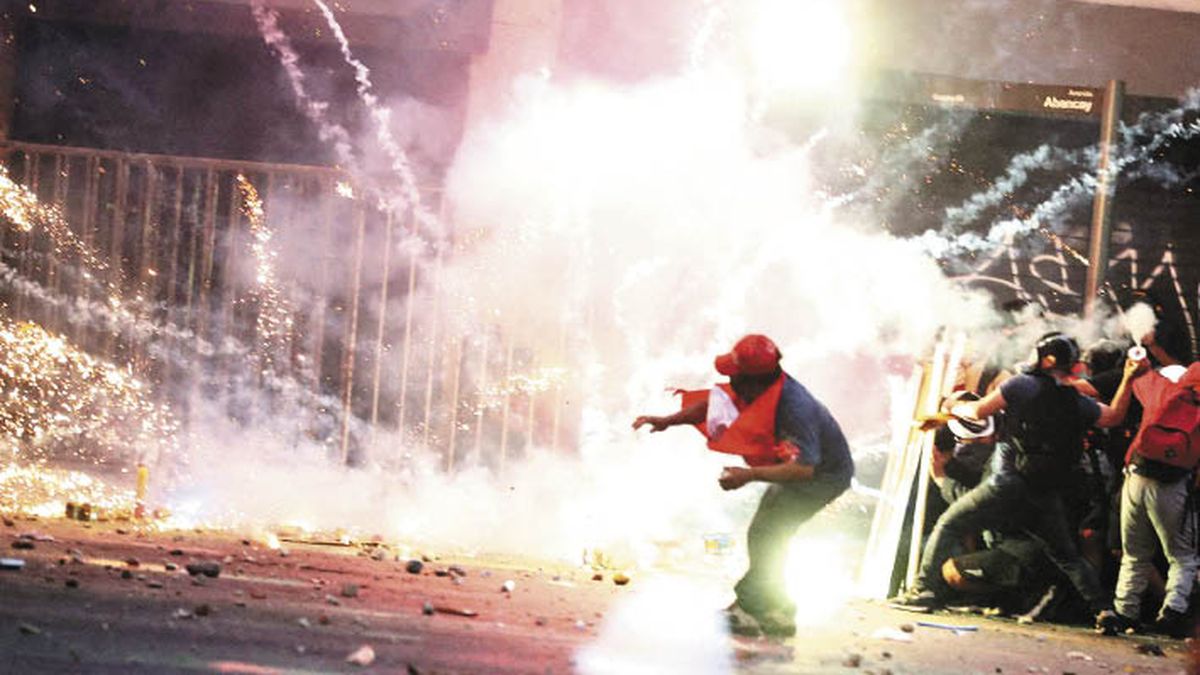“Any line of what is acceptable has already been crossed. This has no justification. This level of violence by the Police with the endorsement and mandate of political power is a rupture of the democratic order. There is no rule of law”, reacted the former socialist parliamentarian Marisa Glave.
“This regime cannot continue another minute. He has only known how to shoot at the people, as if life were worthless,” added left-wing activist Lucía Alvites. Comments in the same sense flood the networks and the streets.
After two weeks of intense mobilizations in Lima, which despite being mostly peaceful, always ended in clashes between groups of protesters and police around the congressional facilities, a 55-year-old man became the first person to die on Saturday in the capital, with a police shot to the head.
But before that, 46 civilians had died, the vast majority by bullets, in various parts of the country, especially in the always neglected southern Andes, to which is added a policeman burned alive inside his patrol car by protesters. The Ombudsman’s Office has also documented another 10 deaths due to indirect events, but derived from the conflict.
Failure
Boluarte, who blames what is happening on “violentists” linked to terrorism, financed by drug trafficking and illegal mining and encouraged by leaders such as former Bolivian President Evo Morales, has said that he will not resign, but has urged Congress to advance him. more possible the elections, originally thought for April 2024.
A maneuver in this sense led by one of the parties of the radical right, Fuerza Popular (FP), failed on Saturday in its intention to advance the elections to October of this year. Neither the left nor the other right-wing parties supported the initiative, which many saw as a Fujimorist tactic because it was the sector best prepared for elections with a lightning campaign.
The 54 days since December 7, when Congress removed President Pedro Castillo – who had previously tried to dissolve Congress and rule by decree – and replaced him with Vice President Boluarte, his former partner on the ticket of the left-wing Peru Libre party They have been a permanent social fire.
Boluarte, at first, announced his intention to stay until 2026, as the Constitution would allow, thus ignoring the national clamor, reflected in polls, for early elections to elect new Executive and Legislative. When he corrected hours later with an early election announcement, the country was already on fire, and there has been no pause since.
polls
According to a survey by the Institute of Peruvian Studies published this Sunday, the president is rejected by 76% of Peruvians, compared to 17% who support her. That is to say, in less than two weeks she surpassed the rejection figures for Castillo, which were always high.
In the southern Andes, made up mostly of indigenous communities and from which Boluarte, a Quechuo-speaking lawyer from the department of Apurímac, from a poor peasant family, paradoxically comes, this rejection reaches 88%, which explains why this is the epicenter of the protests.
The protests, with a diverse agenda, derived from their diverse and almost anonymous leadership, focused from the beginning on five points: Boluarte’s resignation, the closure of Congress, immediate elections, a new Constitution and freedom for Castillo.
A recent pronouncement by the National Assembly of the Peoples, one of the protesters’ agglutinators, makes some modifications: it insists on the departure of Boluarte, on prompt elections and on the Constituent Assembly, but instead of an immediate closure of Congress, it calls for a recomposition of his directive, so that an interim government emerges from there, and he practically leaves Castillo aside.
But in the street mobilizations, the most repeated slogan is the departure of the president, the previously unknown leftist militant who ended up becoming an ally of the right-wing forces that run Congress.
In this context, insistent rumors handled by newspapers such as La República, suggest that Boluarte is close to resigning, and if he does not do so, it is because his prime minister, Alberto Otárola, prevents him from doing so, who, for many, is the one who makes the decisions. of government, especially in terms of repression.
If Boluarte were to resign, the presidency would have to be assumed by the head of Congress, the right-wing José Williams, who, unlike the president, would be bound by the Constitution to hold elections in six months.
The problem, for analysts, is how the population would react to an interim presidency that emerged directly from a Parliament with 88% disapproval, and especially with a retired Army general like Williams.
Telam Agency
Source: Ambito




